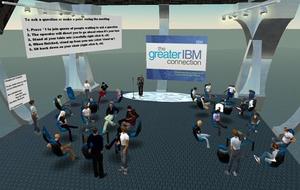THIS JUST IN: Things change!
Although I may be considered part of the internet generation, it wasn't all that long ago that I too was living without the internet. I remember when there was Dial Up and when AOL told me "You've Got Mail" everyday, and you would have to wait to hear that for ten solid minutes while the internet connected. Ah yes those were the days. So much about the internet has changed since then, even things as simple as how quickly we can access it.
There are changes to the internet that I could never foresee back when AIM was the only way to chat with friends. And I am fairly certain, that there are still changes coming that I cannot predict now. I'm sure social networks and user generated content will become as ubiquitous as air (as mentioned in my last post), I'm sure we will be connected to the internet everywhere we go, and I'm sure there are many other changes yet to come.
All this evolution seems to happen naturally though, the internet responds to the changing needs of the consumers, and though it may seem like a shock at the time, eventually all the changes sort of just lump together seamlessly until we don't even notice it anymore. Just like someday soon the fact that I will no longer be a "student" will somehow be normal too.








